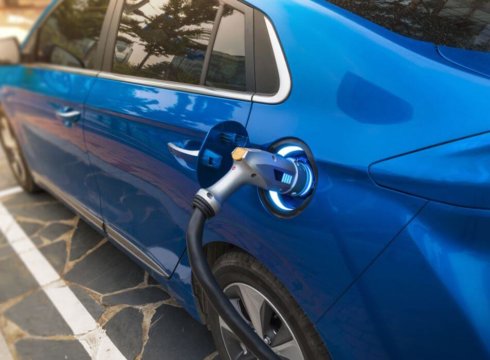SUMMARY
NITI Aayog has moved a cabinet note, asking to assign responsibilities to different ministries
It has also asked the road transport and highways ministry to prepare a framework to stop sale of ICE vehicles
India is obliged to reduce its global emissions, owing to the Paris climate agreement it signed in 2016
Inc42 Daily Brief
Stay Ahead With Daily News & Analysis on India’s Tech & Startup Economy
In a move backing the government emobility targets set for 2030, the NITI Aayog has proposed that only electric vehicles should be sold in India by 2030. The government think tank believes that such a move will expand India’s clean fuel vision beyond two and three-wheelers in the country.
According to a report, NITI Aayog has moved a cabinet note, asking to have responsibilities assigned to different ministries. It has also asked the road transport and highways ministry prepare a framework which will help cut out on the sale of petrol and diesel vehicles. The commission has also proposed piloting an ehighway programme with an overhead electric network to enable trucks and buses to ply on select national highways. The proposal also includes a plan to manufacture 50 gigawatt hour (Gwh) batteries by 2030.
Earlier, a panel headed by NITI Aayog CEO Amitabh Kant had suggested that only EV (three-wheelers and two-wheelers) of up to 150 CC engine capacity should be sold from 2025.
India needs to make a transition to electric vehicles as it is one of the significant sources of air pollution and Indian cities already have alarming air quality index (AQI) levels. Further, India is obliged to reduce its global emissions, owing to the Paris climate agreement it signed in 2016. Lastly, it would also help India reduce oil imports which is a significant expense for the exchequer.
According to a joint study by NITI Aayog and Rocky Mountain Institute, India can save up to 64% on its energy demand for road-based mobility and cut down on 37% of carbon emissions in 2030 if it works towards a shared, electric, and connected mobility future. If such a framework is implemented, it could lead to a reduction of 156 Mtoe (Million Tonnes of Oil Equivalent) in diesel and petrol consumption for a year, along with a net saving of roughly INR 3.9 Lakh Cr in 2030 at present oil prices.
Ensuring A Smooth Transition From ICE Vehicles
Earlier on Monday, electric vehicle makers’ body — Society of Manufacturers of Electric Vehicles — SMEV called for the imposition of ‘green cess’ on polluting vehicles besides putting EVs in priority lending sector to accelerate the creation of a robust ecosystem.
A report quoting SMEV Director General Sohinder Gill said that the funds generated from such a cess can help reduce the burden on the government exchequer and also enable a flow of incentives to customers and bring the price electric two-wheelers down to the level of petrol two-wheelers. Gill also asked the government to promote a ‘clean air’ campaign, which could be integrated under the Swachh Bharat Mission.
Transport minister Nitin Gadkari had earlier spoken about mandating EVs from 2030 but has now said that the decision will be taken after consulting the industry. Niti Aayog’s in its cabinet proposal also suggested that Gadkari’s ministry should issue norms for cab aggregators, asking them to replace all petrol and diesel vehicles with EVs by 2030. The heavy industries ministry will also be replacing all diesel and petrol vehicles with EVs in all central ministries, agencies and public sector units by 2030.
Note: We at Inc42 take our ethics very seriously. More information about it can be found here.


